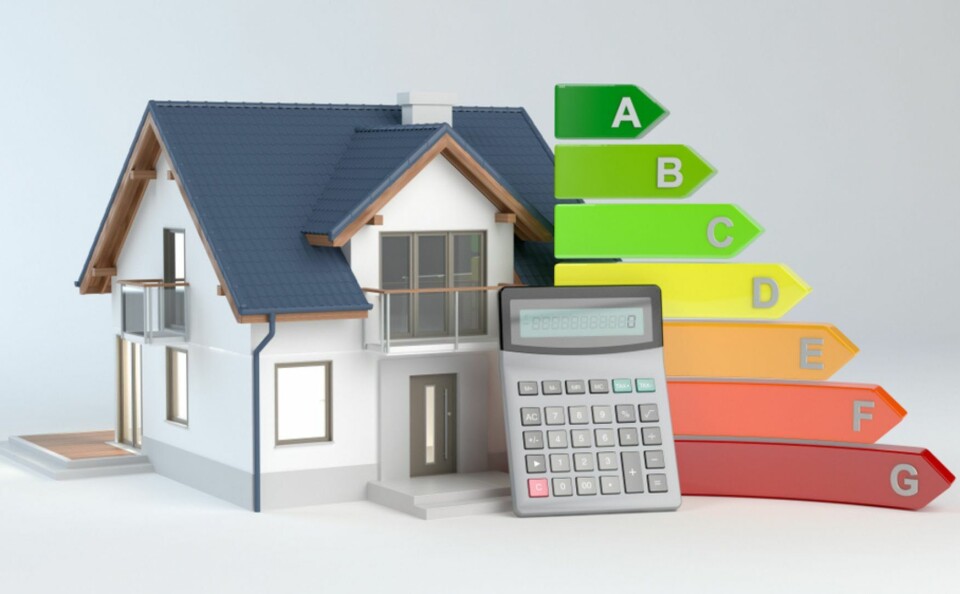-
Explained: how to register a classic car in France
It is relatively straightforward to get a carte grise véhicule de collection for your vehicle
-
How to fit in when you move to France: avoid that ‘expat bubble’
After two decades in central Brittany, Jill Fitzgerald O’Connor wants to help other movers feel part of their new community
-
How to save money on fashion and clothes in France
Growing number of second-hand shops are selling clothes by weight
Explainer: DPE survey and new energy audit for properties in France
Key points on the mandatory 'diagnostic de performance énergétique' and extra audit for low-rated homes

As a resident or second-home owner in France, you will probably have to deal with the French property energy rating system, at some point.
Here are the key points of the French government’s scheme to ensure homes are not too hot in summer or too cold in winter.
Diagnostic survey for selling or renting out property
It is already mandatory to undertake a diagnostic de performance énergétique (DPE) survey, which estimates the energy use of a home and the amount of greenhouse gases linked to it, and to state the results when selling or renting a property.
Properties are rated A to G , with A being the best.
The most efficient A rated properties use 70 kWh per m², and G is the least efficient, at more than 421 kWh per m².
The DPE category must be included in all estate agency adverts, both for rent and sale.
How do they calculate the rating?
The actual power consumption of a property, based on an energy bill, is no longer a consideration in the DPE evaluation.
Instead, it is based on factors including a property’s:
-
Construction materials
-
Orientation
-
Insulation
-
Double glazing
-
Heating equipment
Older properties without modern insulation can fare poorly, even if they do not actually consume much electricity
Extra audit for F and G rated property
Now, in the case of homes that receive F and G ratings, sellers will also have to undertake an audit énergétique (energy audit) and show this to prospective buyers from the first time they visit the house.
The document will suggest the work needed to raise the energy category, although carrying out the improvements is not necessary for the sale.
The audit will be mandatory for houses, and buildings belonging to a single owner, but not for most apartments.
What will the extra audit include?
As well as describing the general heating and energy characteristics of the property, and the suggested renovation work, the document should include:
-
An estimate of potential energy savings
-
An estimate of the cost of renovations
-
The main national and local financial aid packages available
It should offer at least two scenarios for undertaking the renovations, in one or several steps, allowing the property to reach a C categorisation.
Unless there are ‘particular constraints’, the first step should raise the level to at least E.
Similar audits will be required for homes in bands E from 2025 and D from 2034.
Selling a property
Adverts for sale properties classed F and G or G+ must include the line logement à consommation énergétique excessive, or ‘housing with excessive energy consumption’.
Buyers, who do not wish to rent out the property they purchase, can still buy properties that score poorly, if they choose.
Restrictions for landlords
Since January 1 2023, it is not permitted to let out a property rated G+ consuming 450 kWh per m².
G rated rental properties that are currently rented out are deemed ‘not-decent’ and the tenant can require the property owner to do the necessary work to improve it.
The tenant must, however, continue to pay rent.
Rent prices set for F and G rated properties cannot be increased.
According the new timetable:
-
From January 1, 2025 rental properties must have a minimum category of F or up to 420 kWh per m².
-
From January 1, 2028 rental properties must have a minimum category of E or up to 330 kWh per m².
-
From January 1, 2034 rental properties must have a minimum category of D or up to 250 kWh per m².
How to find an auditor
New audits can be undertaken by firms with the audit énergétique en maison individuellequalification, those with RGE offre globalecertification, and certified diagnostiqueurs.
You can find an auditor at either of these two government websites:
https://diagnostiqueurs.din.developpement-durable.gouv.fr/index.action
https://france-renov.gouv.fr/annuaire-rge
The audit is likely to cost anywhere from €400 to €1,000 or more, depending on the property.
DPE evaluations are valid for 10 years.
Can a rating be ‘fudged’?
No. The misleading display or manipulation of a DPE evaluation is punishable by a fine of up to €3,000 for individuals or for €15,000 for companies.
Related articles
Timetable for new energy-linked restrictions for homes in France
Is France’s DPE property energy rating based on actual bills?
Old rural homes should be exempt from EU energy plan says French group
























